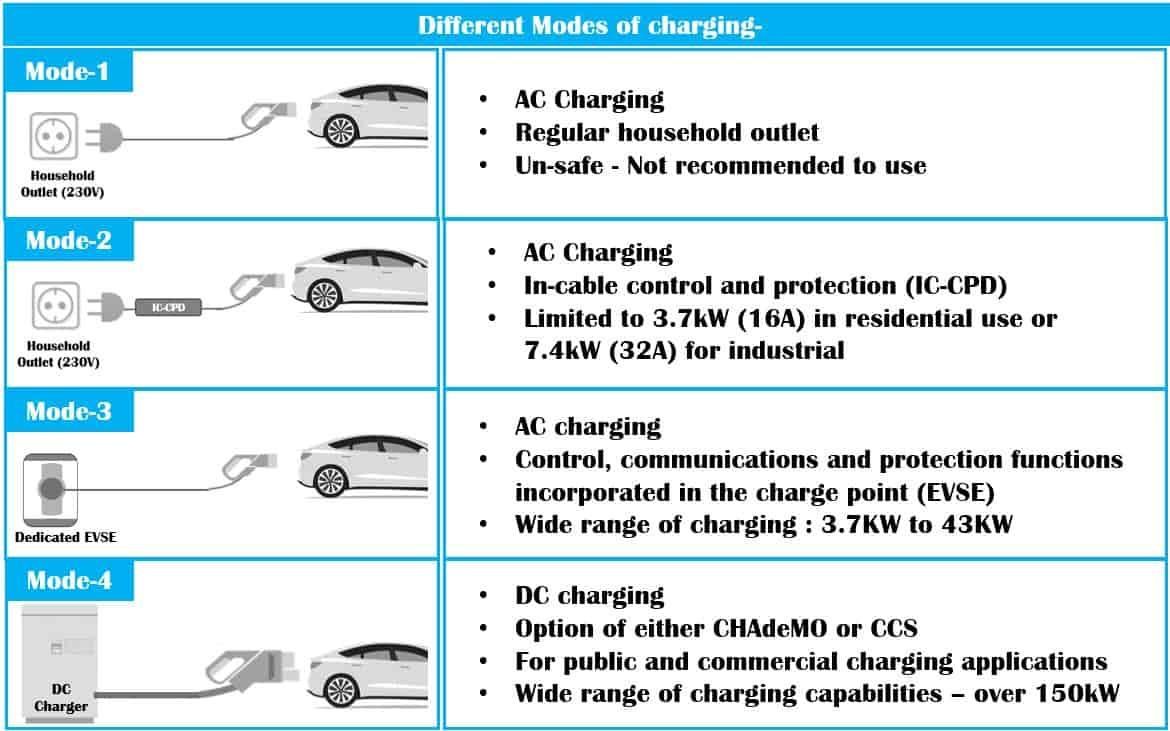The Ultimate Guide to Choosing the Right EV Charger and Charging Cable

The Ultimate Guide to Choosing the Right EV Charger and Charging Cable
With the proliferation of electric vehicles (EVs), finding the right EV charger and charging cable has become critical for EV owners. Whether you're a new EV owner or considering buying one, it's crucial to understand the different types of EV chargers and charging cables and their compatibility. In this guide, we'll explore the factors to consider when selecting an electric vehicle charger and charging cable to ensure a smooth and efficient charging experience.
1. Types of EV chargers:
a. Level 1 Charger: A Level 1 charger is the slowest charging option because it runs on a standard 120-volt household outlet. It's best for overnight charging and is often used as a backup or temporary solution.
b. Level 2 Charger: A Level 2 charger provides faster charging and operates on 240 volts. They can travel about 10-60 miles per hour on a charge, making them ideal for home or workplace charging stations.
c. DC Fast Charger (Level 3 Charger): The DC Fast Charger is the fastest charger option. They use direct current (DC) to quickly charge your electric car, delivering up to 80% charge in as little as 20-30 minutes. They are commonly found at public charging stations and are great for long trips.
2. Precautions for electric vehicle charger selection:
a. Charging speed: Evaluate your charging needs and driving habits to determine the appropriate charging speed. For the daily commute, a Level 2 charger provides a good balance between charging time and convenience.
b. Installation Requirements: Make sure your electrical system can support the voltage and current specifications of the charger. Also, consider the physical space available for installation and the distance from the charging location to the EV.
c. Connectivity options: Some EV chargers offer smart connectivity features that allow you to monitor and control the charging process through a smartphone app. Consider whether these features fit your preferences and lifestyle.
3. Understand the charging cable:
a. Types of Charging Cables: There are two main types of EV charging cables: Type 1 (J1772) and Type 2 (Mennekes). North American uses Category 1 cables, European standards use Category 2 cables. Make sure your cable is compatible with your EV and charger type.
b. Cable length and flexibility: Depending on your charging setup, consider the length of cable you need to reach your EV without any discomfort. Also, look for cables with the proper flexibility for easy handling and storage.
c. Cable safety: A high-quality charging cable should be durable, weather-resistant, and have built-in safety features, such as surge protection and automatic shutdown in the event of overheating or other malfunctions.
Choosing the right EV charger and charging cable can greatly impact the convenience and effectiveness of your EV ownership experience. Make an informed decision by considering charging speed, installation requirements, connectivity options, and cable compatibility. By choosing the right EV charger and charging cable, you can ensure efficient, hassle-free charging, maximizing the potential of your EV while contributing to a greener future.
Post time: Aug-04-2023








